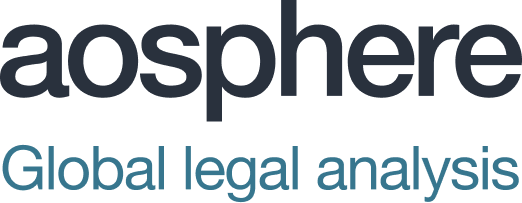Overview
In this article we look at how reverse enquiry continues to be an area of uncertainty and subject to increased regulatory scrutiny.
In a climate of continued global economic volatility, rising operating costs and a drive towards increased regulation, investment firms and funds are having to be strategic about their distribution methods. Relying on reverse solicitations to access EEA investors may, at first glance, look attractive from a cost and administrative perspective. However, this continues to be an area of uncertainty and subject to increased regulatory scrutiny.
In the following article we take a look at the parameters of reverse solicitation in the EU, the impact of recent changes to the pre-marketing of funds regime in Europe on the scope of reverse solicitation and consider how firms may mitigate their risks.
What is reverse solicitation?
Reverse solicitation is where an investor contacts the firm to express interest in the firm and/or its funds/services. Provided the relevant conditions are met, it may be possible to respond to this expression of investor interest without triggering:
- firm level requirements, such as the requirement for firms to be licensed under MiFID II; or
- fund level requirements, such as the requirement to make a filing to market an AIF or a UCITS.
The key matter to be addressed in terms of each reverse enquiry is whether it meets the relevant conditions. It is necessary to consider both the overriding EU legislation that governs this area as well as each jurisdiction’s particular interpretation.
MiFID II provides for a specific reverse solicitation exemption from licensing requirements for third country firms, where the EU client initiates “at its own exclusive initiative" the provision of investment services or activities. Any activities by a third country firm to solicit, promote or advertise its investment services or activities (regardless of the entity or method used) would negate the own exclusive initiative concept. A third country firm also cannot rely on the concept of reverse enquiry to market new categories of investment products or services to that client.
In terms of the filing requirements that apply when marketing an AIF, the AIFMD does not expressly provide for a similarly specific reverse exemption, although from a read of recital 70 of the AIFMD (which states that the directive is not intended to affect professional investors who are investing in funds "on [their] own initiative") together with the AIFMD's definition of "marketing", it is clear that contacts initiated by investors are intended to be outside the scope of the AIFMD's marketing provisions.
Aside from these provisions at an EU law level, the position on what constitutes a permitted reverse enquiry in a particular jurisdiction is often shaped by local market practice and/or the local regulator's guidance or tolerance levels, as opposed to being specifically provided for in national legislation. A firm wishing to respond to a reverse enquiry is therefore faced with diverging treatment of the concept of reverse solicitation (with the regulators of some jurisdictions such as Italy and France having a particularly strict interpretation of the concept). Despite this lack of homogeny, it is important to note that the general trend across the EU points towards construing reverse solicitation narrowly.
Impact of pre-marketing of funds regime
The harmonisation of the pre-marketing of funds regime in Europe, brought into force in August 2021 by the cross-border distribution of funds (CBDF) package, has also had an impact on the circumstances in which firms can rely on reverse solicitation.
The CBDF directive included a provision which stated that any subscription to an AIF within 18 months of it having been pre-marketed in a particular jurisdiction is considered to be the result of active marketing and is subject to the applicable marketing passport notification procedures under the AIFMD. This means that there is effectively an 18 month restriction on relying on a reverse enquiry where the reverse enquiry relates to the units/shares of an AIF that was pre-marketed or that was established as a result of pre-marketing.
The interpretation of this restriction has varied across individual EEA Member States. Some Member States have limited the new restriction only to those investors that received the pre-marketing activities (e.g. Portugal) but a larger number have thrown the net wider so as to also catch any investor from a jurisdiction in which premarketing was carried out, whether such investor was a recipient of the pre-marketing or not (as is the case in Czech Republic, Denmark, Finland and France). Further, where such pre-marketing rules have been extended to also apply to non-EU AIFMs (as is the case in Germany and the Netherlands), the new regime and its impact on the use of reverse solicitation needs to be considered in this context too.
When considering pre-marketing and distribution strategies across Europe, AIFMs (both EEA and non-EEA) should consider carefully the position that applies in each Member State (aosphere subscribers can see our CBDF Pre-Marketing Tracker for more information) and the consequences of pursuing pre-marketing activities with investors in each Member State on their ability to respond to reverse enquiries.
We understand that the approach that many firms are taking is to prepare a matrix for each EEA jurisdiction, designating each jurisdiction as either:
- one where they will pursue active/pre-marketing strategies; or
- conversely, as one where they will conduct no active/pre-marketing at all and restrict activities to responding to reverse enquiries only.
Reverse solicitation in the spotlight
EU regulatory bodies have made some attempts at clarifying and harmonising reverse solicitation practices. In its Q&A on investor protection and intermediaries under MiFID II, ESMA provided guidance on how the MiFID II reverse solicitation regime for third country firms should operate and specifically in what circumstances a client will be deemed to have acted on its “own exclusive initiative”.
Further, amid concerns about questionable practices by firms relying on reverse solicitation for cross-border distribution of investment services in a post-Brexit climate, in January 2021 ESMA issued a statement warning against abuse of the MiFID II reverse solicitation regime and reminded firms of the conditions around permitted reverse enquiries. The kinds of practices that were identified are the use of generic clauses in terms of business or online pop up consent boxes.
More recently, in January 2022 ESMA published a letter it had sent to the European Commission in response to a call for evidence on the levels of reverse solicitation in the EU. ESMA flagged its difficulty in obtaining relevant information. However, for those jurisdictions where it was provided with data, it states that the levels were high enough to raise concerns over the potential for reverse solicitation practices to circumvent licensing and registration requirements. As a result, ESMA suggested that the European Commission could consider contacting market participants (e.g. asset managers, depositories or account holders via national and European trade associations) directly to obtain information on reverse solicitation and also mentioned that it is considering the introduction of new reporting requirements allowing it to collect information on reverse solicitation across the EU. Whilst we still await the European Commission's report, ESMA's findings serve as an important indicator of what we might expect.
Tips for compliance
Our extensive coverage of the EU Member States in our Marketing Restrictions services allows us to spot themes and trends on reverse solicitation practices. Although a jurisdiction-by-jurisdiction assessment is required, here are some best practice guidelines to bear in mind (taking account of the ESMA Q&A and Member State regulator guidance) when responding to reverse enquiries from investors in the EEA:
- Scope: You should be clear on whether each transaction with a particular investor needs to be preceded by a separate reverse enquiry and whether each reverse enquiry needs to relate to a specific product/service or whether it can be more general. Note that follow-up communications and meetings with investors who have invested previously in a fund or have been recipients of investment services on the basis of a reverse enquiry may not continue to fall outside the scope of relevant restrictions.
- Frequency: Generally speaking, the higher the number of reverse enquiries responded to, the greater the risk of being viewed as conducting active marketing/selling activities. Also be mindful as to whether the jurisdiction has set a maximum number of investors to whom you may market/sell in response to a reverse enquiry by reference to public offer rules, or otherwise.
- Evidence: It should be demonstrated that the request was genuinely unsolicited and made at the initiative of the investor. This can often be done by keeping an audit trail of any communications and obtaining a written acknowledgement from the investor but note that use of a standard template should be avoided in some jurisdictions (e.g. France and Ireland) as it can serve to indicate that a particular market is actually being specifically targeted.
- Cross-border versus onshore activities: In some jurisdictions, reverse enquiries can only be responded to from offshore, on a cross-border basis (e.g. Greece and Portugal). You should check whether attendance at fly-in meetings or any onshore activities, even where requested by an investor, will negate the reverse enquiry.
- Type of investor: Often reverse enquiries from retail investors require more care and in some cases such as Italy there is uncertainty as to whether reverse enquiries can be accepted by any investors other than institutional investors. Also be aware that in some jurisdictions pre-existing relationships with an investor may make it harder to prove the genuine nature of the reverse enquiry.
Final thoughts
Whilst it is unlikely that the door on reverse solicitation in the EEA will close altogether, recent developments do signal a policy shift at EU regulator level towards potential increased reporting requirements and narrower circumstances for reliance. We will continue to closely monitor developments in this area.
How aosphere can help
Our two online legal subscription services, Rulefinder Marketing Restrictions and Rulefinder Marketing Restrictions - Asset Management, can help you navigate regulatory complexities by providing practical guidance applicable to the marketing of financial products and services and the marketing of open and closed-ended funds and managed accounts, covering the position for institutional and retail investors across 80+ jurisdictions.







